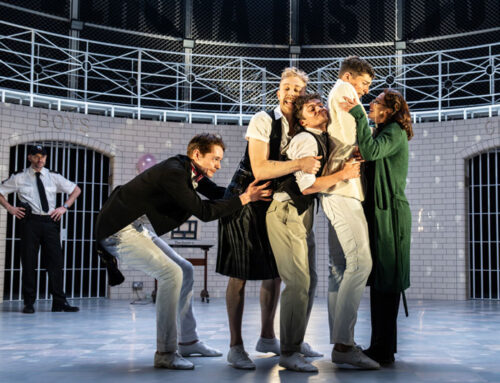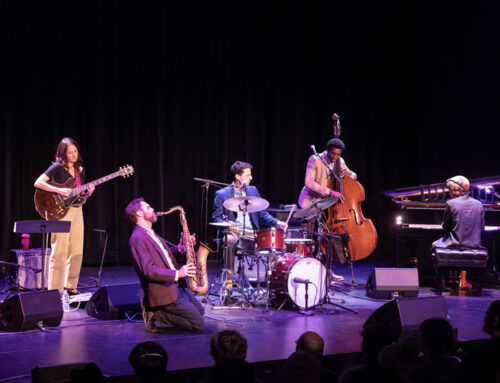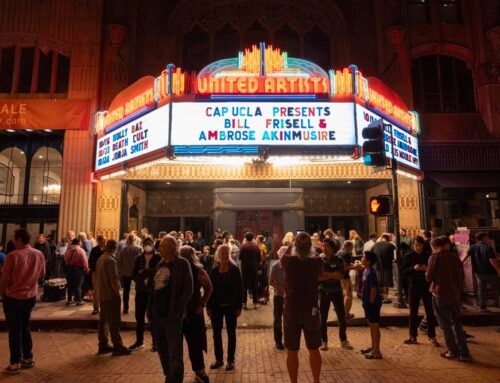An enthusiastic vaccinated and masked audience welcomed opening night of the LA Opera’s original production of Richard Wagner’s “Tannhäuser” conducted by James Conlon with tenor Issachach Savage in the leading role.
Yulia Matochkina as Venus and Issachah Savage as Tannhauser in LA Opera’s 2021 production of “Tannhauser”; photos by Cory Weaver; courtesy of LA Opera
The 19th-century German romantic opera is a tale of the philosophical struggle between sacred love and profane lust and hope for spiritual redemption. With the elegantly designed staging and emotionally driven performances we are transported into a mythic realm and shown people having human inner struggles.
The production, originally created by director Ian Judge in 2007, features scenery and costumes designed by Gottfried Pilz and features new staging by director Louisa Muller, with additional new costumes by Misty Ayres, and new lighting by Marcus Doshi and new choreography by Aszure Barton. Grant Gershon is the chorus director. Together this creative team very effectively transforms each of the scenes and the juxtaposes the feel and contrast between the ethereal and the worldly.
The opera is presented in three Acts separated by two intermissions.
The overture to Act One, with it’s free-flowing harmonic changes set us up to evoke spiritual thoughts. We then see Tannhäuser, in the magical home of the goddess Venus, pacing the darkened stage aglow with red lighting and our attention soon focuses on a Bacchanalian ballet of dancers connecting and contorting with each other. He offers effusive praise to Venus, who has loved him for more than a year and she promises him greater revelries to come. Tannhäuser then invokes the Virgin Mary and expresses longing for the simple pleasures and pains of earthly life. At this point, Venus curses his hopes of salvation and she and her world vanish.
Morris Robinson (center) as Hermann, with Sara Jakubiak (in white) as Elisabeth in LA Opera’s 2021 production of “Tannhauser”; photos by Cory Weaver; courtesy of LA Opera
Act Two takes place in the Hall of Song, where Elisabeth first heard Tannhäuser’s divine voice. Their friend Wolfram reunites the couple and they sing God’s praises. The stage fills with guests as Elisabeth’s uncle promises her hand in marriage to the winner of a contest of love songs. Wolfram sings romanticized praise to Elisabeth, whom he has also loved. Tannhäuser, his soul still possessed by Venus, responds with a frenzied celebration of the carnal pleasures. The guests are shocked and the self-sacrificing Elisabeth attempts to protect Tannhäuser and her uncle pardons him on the condition that he make a pilgrimage to Rome to seek absolution.
In Act Three, which takes place months later, opens with Wolfram seeing Elisabeth praying before a shrine. Soon she approaches pilgrims and looks for Tannhäuser who is not with them. Broken-hearted she prays to the Virgin to receive her soul in heaven. Tannhäuser returns and despairingly relates to Wolfram that despite his penitence, the Pope decreed he is as apt be forgiven as the papal staff could flower. Desperately Tannhäuser evokes Venus, but she vanishes when he is reminded by Wolfram of Elisabeth, whose funeral procession now nears. Tannhäuser collapses and dies by her side. A chorus of pilgrims enters, telling of a miracle and show that the Pope’s staff has blossomed.
Issachah Savage commands the stage with his rare and beautiful voice. American soprano Sara Jakubiak makes her company debut as Elisabeth. Russian mezzo-soprano Yulia Matochkina makes her company debut as Venus. Baritone Lucas Meachem is Wolfram and bass Morris Robinson performs the role of Hermann. The cast also includes bass-baritone Philip Cokorinos as Biterolf and bass-baritone Patrick Blackwell as Reinmar. Two members of the Domingo-Colburn-Stein Young Artist Program, tenors Robert Stahley and Anthony Ciaramitaro, appear respectively as Walther and Heinrich, and an alumna of the program, soprano Erica Petrocelli, is heard as the voice of the Shepherd.
The sets and costumes designed by Gottfried Pilz features new staging by director Louisa Muller, with additional new costumes by Misty Ayres, enhanced by new lighting by Marcus Doshi and new choreography by Aszure Barton.
Issachah Savage as Tannhauser and the chorus of pilgrims in a scene from LA Opera’s 2021 production of “Tannhauser”; photos by Cory Weaver; courtesy of LA Opera
Given the current focus on “cancel culture,” it is interesting to note that in the program notes it is acknowledged that while Wagner’s brilliant contribution to Western music is undisputed, his anti-Semitic views continue to make him a controversial figure. “In performing his music, we recognize Wagner’s aesthetic influence and his centrality to the operatic repertoire, but fully acknowledge the moral questions that arise from the engagement with his legacy,” said Christopher Koelsch, President and CEO of LA Opera. “We will continue to explore, discuss and bring these issues to light.”
James Conlon’s “Tannhäuser” talk is screened on large outdoor monitors on the Music Center Plaza for audiences to enjoy, beginning one hour before the opera. CLICK HERE to view the talk.
LA Opera has adopted a temporary vaccination-only policy as well as an indoor mask mandate and you will be checked before entering the venue.
Music Center on-campus restaurants are currently closed and expected to open later in Fall 2021. Bar service is available on the plaza and on the 2nd floor of the Dorothy Chandler Pavilion in the designated Food & Beverage area and outdoor balcony. Small tables and chairs are spread out on the renovated Jerry Moss Plaza
Tickets for “Tannhäuser” at the Dorothy Chandler Pavilion begin at $19 and are on sale now. Digital tickets to watch the live-streamed performances of “Tannhäuser” on either October 24 at 2pm or October 27 at 7:30pm can be purchased for $30. For more information, go to LAOpera.org

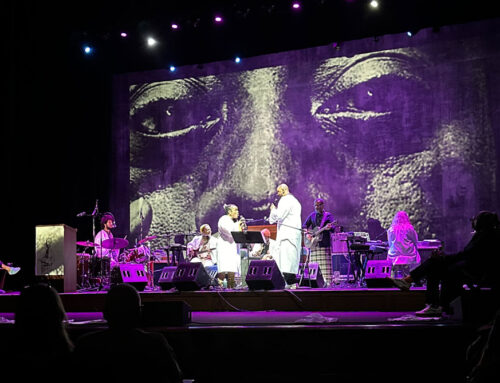
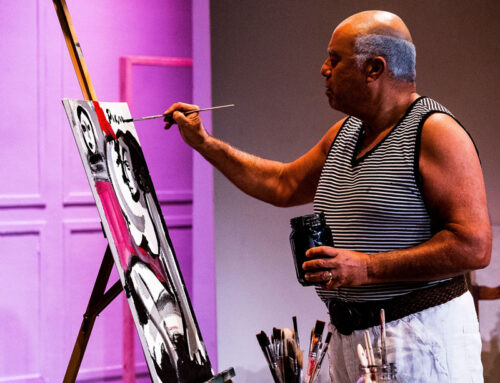
![Review: The Rite of Spring & common ground[s] at the Music Center](https://www.laartparty.com/wp-content/uploads/2024/02/review-feb2024-music-ctr-common-ground-credit-maarten-vanden-abeele-web-800-500x383.jpg)
